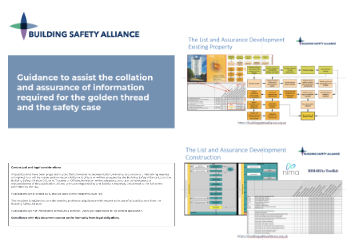The difference between planning permission building regulations approval
Contents |
[edit] Introduction
People unfamiliar with the development process can become confused by the number of permissions that are necessary, and in particular, the difference between planning permission and building regulations approval.
In fact, whilst they may (but are not necessarily) both be granted by the local authority, they are very different.
[edit] Planning permission
Planning permission is the granting of permission to proceed with a proposed development. Responsibility for granting permission generally lies with local planning authorities (usually the planning department of the district or borough council). All developments require planning permission, other than ‘permitted developments’, which are considered to have insignificant impact.
The Ministry of Housing, Communities and Local Government (MHCLG) decides national planning policy for England and this is set out in the National Planning Policy Framework. Considerations about whether to grant planning permission might include; siting, size, use, context, access, compliance with the local plan and national planning policy and so on. The legislation, policy and guidance that underpins planning in England can be found on the government's National Planning Practice Guidance website.
For more information see: Planning permission.
[edit] Building regulations approval
The building regulations set out requirements for specific aspects of building design and construction. In England, the Ministry of Housing, Communities and Local Government (MHCLG) is responsible for setting the building regulations. The regulations apply to most new buildings and many alterations to existing buildings, and relate to aspects of building design and construction such as; fire safety, structure, accessibility, ventilation, drainage and so on. A series of approved documents provide general guidance about common situations in building design and construction and how they can comply with the building regulations.
Building Regulations approvals can be sought either from the building control department of the local authority or from an approved inspector. Generally on larger, new-build projects, a 'full plans' application will be made, meaning that full details of the proposed building works are submitted for approval before the works are carried out. On small projects, or when changes are made to an existing building, approval may be sought by giving a 'building notice'. In this case, a building inspector will approve the works as they are carried out by a process of inspection.
When the works are complete, a completion certificate is issued by the building control body, providing formal evidence that the works have been approved, and that, in so far as it is reasonable to determine, they have been carried out in accordance with the building regulations.
For more information see: Building Regulations.
[edit] Related articles on Designing Buildings Wiki
- Approved documents.
- Approved inspector.
- Building control body.
- Building regulations.
- How long does it take to get planning permission.
- How long does planning permission last.
- How long it takes to get building regulations approval and how long it lasts.
- Listed buildings.
- Local plan.
- Main types of planning permission.
- National Planning Policy Framework.
- National Planning Practice Guidance.
- Permitted development.
- Planning fees.
- Planning objection.
- Planning permission.
- What approvals are needed before construction begins.
Featured articles and news
International Electrician Day, 10 June 2025
Celebrating the role of electrical engineers from André-Marie Amperè, today and for the future.
New guide for clients launched at Houses of Parliament
'There has never been a more important time for clients to step up and ...ask the right questions'
The impact of recycled slate tiles
Innovation across the decades.
EPC changes for existing buildings
Changes and their context as the new RdSAP methodology comes into use from 15 June.
Skills England publishes Sector skills needs assessments
Priority areas relating to the built environment highlighted and described in brief.
BSRIA HVAC Market Watch - May 2025 Edition
Heat Pump Market Outlook: Policy, Performance & Refrigerant Trends for 2025–2028.
Committing to EDI in construction with CIOB
Built Environment professional bodies deepen commitment to EDI with two new signatories: CIAT and CICES.
Government Grenfell progress report at a glance
Line by line recomendation overview, with links to more details.
An engaging and lively review of his professional life.
Sustainable heating for listed buildings
A problem that needs to be approached intelligently.
50th Golden anniversary ECA Edmundson apprentice award
Deadline for entries has been extended to Friday 27 June, so don't miss out!
CIAT at the London Festival of Architecture
Designing for Everyone: Breaking Barriers in Inclusive Architecture.
Mixed reactions to apprenticeship and skills reform 2025
A 'welcome shift' for some and a 'backwards step' for others.
Licensing construction in the UK
As the latest report and proposal to licence builders reaches Parliament.
Building Safety Alliance golden thread guidance
Extensive excel checklist of information with guidance document freely accessible.
Fair Payment Code and other payment initiatives
For fair and late payments, need to work together to add value.
Pre-planning delivery programmes and delay penalties
Proposed for housebuilders in government reform: Speeding Up Build Out.
High street health: converting a building for healthcare uses
The benefits of health centres acting as new anchor sites in the high street.
























